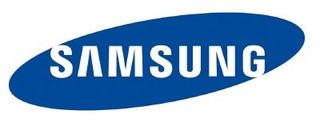Samsung Says Its 10nm FinFET Process Is On Track For Mass Chip Production

Samsung announced that its 10nm FinFET process is on track, showing high yields for its customers' chips. Samsung’s own Exynos 8895 chip, as well as Qualcomm’s Snapdragon 835 and Centriq 2400 server chip are expected to be among the first to use a 10nm process.
Samsung said that it has already shipped 70,000 silicon wafers using the first generation 10nm Low Power Early (LPE) process technology. The company began the mass production of 10LPE chips last October.
Samsung started making 14nm FinFET chips in 2015, and two years later the company is moving to 10nm, as expected. Compared to the 14LPE process, the new 10LPE process will allow chips to be up to 27% faster or up to 40% more efficient, all else being equal. That’s a significant improvement that should be seen in this year’s mobile chips.
“Samsung’s 10nm LPE is a game changer in the foundry industry. Following the 10LPE version, the 10nm LPP and LPU will enter mass production by the end of the year and next year, respectively,” said Jongshik Yoon, Executive Vice President and Head of Foundry Business at Samsung Electronics. “We will continue to offer the most competitive process technology in the industry,” he added.
It’s looking like Samsung will be the first company to manufacture 10nm chips, besting both Intel and TSMC. Samsung has also already set its eyes on the 8nm, 7nm, and 6nm process technologies. The 8nm and 6nm processes will likely be follow-up technologies to the 10nm and 7nm processes, respectively.
The company is expected to reach 7nm by 2019, a move that could be enabled by its partnership with IBM. The company may also use EUV lithography for its 7nm process, but it's not yet clear whether EUV lithography will be available for the first ever 7nm process iteration. Intel has hinted before that it may not adopt EUV lithography until the 5nm process generation.
Samsung will reveal more details about its roadmap, including the 8nm and 6nm process generations, at the upcoming U.S Samsung Foundry Forum scheduled for May 24, 2017.
Stay on the Cutting Edge
Join the experts who read Tom's Hardware for the inside track on enthusiast PC tech news — and have for over 25 years. We'll send breaking news and in-depth reviews of CPUs, GPUs, AI, maker hardware and more straight to your inbox.
-
mavikt I was under the impression new fab's were rather expensive.Reply
Getting equipment for 8, 7 and 6nm process for the relative small performance difference between them sounds ludicrous. Or like a marketing ploy. -
Rob_54 He explains in the article that 8 and 6nm would be half-shrinks. 7nm would be the next full-shrink and following the roughly 30% reduction we've seen in the past.Reply
Most Popular



